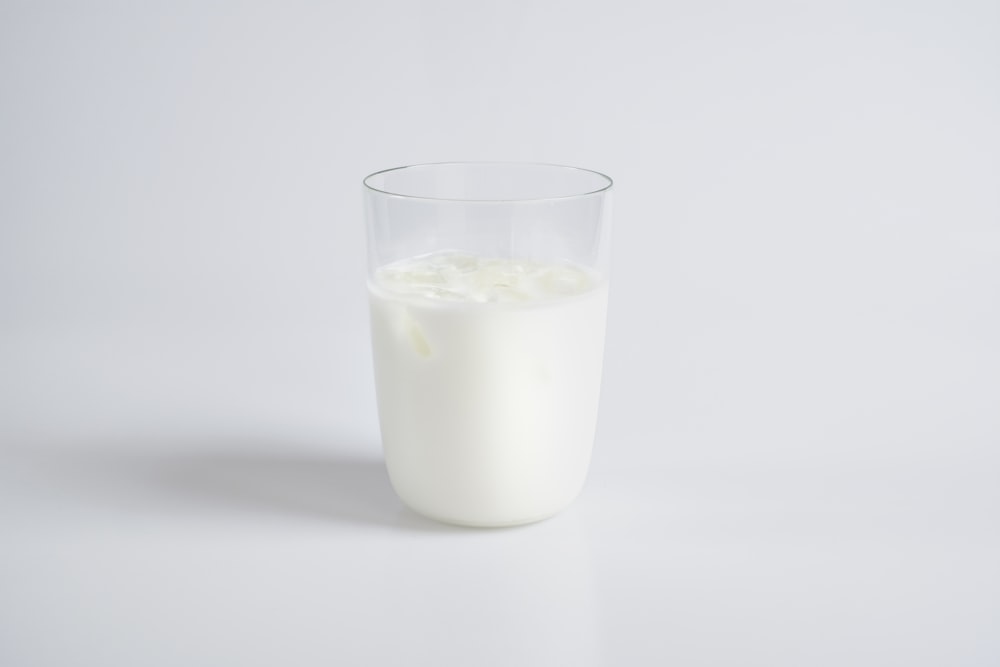Table Of Contents
Nutrition facts for yogurt made with full-fat milk (100g):
- Calories: 79 kcal
- Protein: 5,7 g
- Carbs: 7,8 g
- Fat: 3 g
- Potassium: 280 mg
- Calcium: 200 mg
- Vitamin B12: 0,2 mg
- Vitamin B2: 0,27 mg
Nutrition facts for yogurt made with low-fat milk:
- Calories: 56 kcal
- Protein: 4,8 g
- Carbs: 7,4 g
- Fat: 1,0 g
- Potassium: 228 mg
- Calcium: 162 mg
- Vitamin B12: 0,3 mg
- Vitamin B2: 0,22 mg
Yogurt Benefits
As a mixture of milk and bacteria, yogurt provides the same benefits as milk, with the bonus that the milk acid bacteria can positively impact your intestinal flora, immune system, and the existence of germs in your stomach and intestines.
- Yogurt is rich in calcium, which is great for strong teeth and bones.
- Depending on the type of milk acid bacteria used, yogurt can have a healing effect. According to studies, probiotic bacteria can support the immune system, build up a healthy intestinal flora and extinguish germs in the stomach and intestines. This is especially helpful if you have a stomach ache or diarrhea.
- Low in calories: Natural yogurt, even if it has 3,5% fat, is still considered a healthy snack. If you have a sweet tooth, you can always add fresh fruits or barries to it and do something good for your health.
- Yogurt is usually better tolerated than milk. Milk includes about 4,8-5g lactose per 100g, whereas yogurt has 3,7-5,6g. Why the decline in lactose? The milk acid bacteria pre-digest the lactose making it better tolerated by people with slight lactose sensitivity.
So, how do you make yogurt?
You add bacteria to hot milk. Now, if that doesn’t whet your appetite, we don’t know what does. All kidding aside, if you’re looking to make homemade yogurt, here’s how you do as per the New York Times:
Ingredients:
- 2 quarts whole milk,
- ¼ cup heavy cream (optional)
- 3-4 tbsp plain whole milk yogurt with live and active cultures (we weren’t kidding about the bacteria part)
Instructions:
- Rinse the inside of the pot with icy water, add mild (and cream) and let it simmer until you see bubbles around the edges (180-200 degrees). Stir in-between.
- Take the pot off the stove and let it cool until it reaches 110-120 degrees (basically until you can hold your finger in the liquid for 10 seconds without it burning).
- Take ½ cup of your milk and mix it with yogurt in a separate bowl. When the yogurt-milk mixture is smooth, add it back to the pot of warm milk. Now, cover the pot with a lid and wrap it in a big towel (or put it someplace warm like your oven with the oven light on).
- Let it sit for 6-12 hours until it becomes thick. Just keep in mind that the longer you wait, the thicker it gets. After waiting for max. 12 hours, put the pot in the refrigerator, and wait for at least another 4 hours.
That’s it—you’re very welcome.
When life gives you yogurt, you make a Caucasian yogurt drink!

Known under Tan and Ayran, this drink is a refreshing sour and salty yogurt drink that can be devoured year-round. So if you’re a savory-toothed person even when it comes to drinks, then brace yourself for a new favorite drink!
- 3 cups of plain yogurt
- 1 cucumber (peeled, chopped)
- ¾ teaspoon salt (add to taste)
- 1 handful parsley
- 4 cups of water
Pour all ingredients in a carafe, stir until combined, and ENJOY!
FAQs
Is yogurt lactose-free?
No! Yogurt contains less lactose than milk, but it’s not entirely lactose-free. This said, many lactose-intolerant people still can enjoy yogurt that’s not heat-treated because it has bacteria that will help you digest the lactose. Just make sure that your yogurt doesn’t contain milk powder.
Is yogurt healthy?
The list of yogurt benefits is long. But not all yogurt is equal. If you want to make sure you stay on the healthy side, avoid yogurt that includes added sugar.
Is Greek yogurt healthy?
Greek yogurt has 10% fat. So just keep in mind that you’re consuming rich food and portion your intake accordingly. Then there shouldn’t be any problems.
One unique feature of Greek yogurt is that it’s thicker and creamier than regular yogurt. Why? Because during production, Greek yogurt is drained for a longer time, making it lose a lot of water and whey. That’s why Greek yogurt is rich in protein and low in carbs. In other words, it’s the perfect light meal for athletes!
If you didn’t have enough and want to read more, check our colorful selection of healthy superfoods.
Additional Reading
Photo Credit: Unsplash

